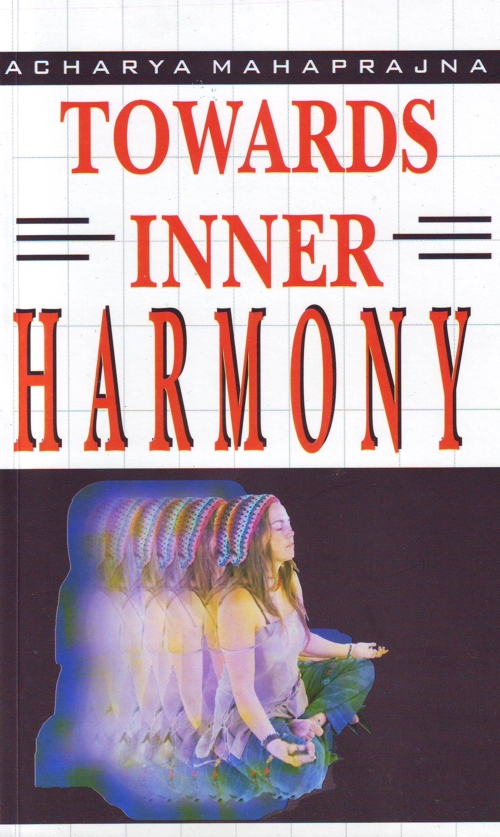It is fascinating to observe how Sri Yuvacharya Mahaprajna' s most thought-provoking and breath-takingly lucid books come into being. At the appointed hour, a lean tall man with a calm, smiling face enters the hall where the shivrarthis are gathered to practise dhyana. After initiating them into the precise mode and conduct of the day's meditation, he takes up a pad and jots down a few points - an outline of the discourse he would deliver an hour later. All through his writing, he is aware of the passage of time, glancing at the clock every now and then and giving further instructions to the sadhaks. At the conclusion of the meditation session, he smiles at his audience and asks, "How did it go?"
There is a short intermission for tea or lemon water and the great man returns and begins his discourse, without once looking at the pad on which he had earlier jotted down certain points. He speaks for nearly an hour in fluent and chaste Hindi. At the end of the discourse he answers questions. He does so every day for the duration of the shivir. At the conclusion of the shivir, a new book is born, for it is his daily discourses duly recorded which are later edited and printed.
Sri Yuvacharyaji is a living embodiment of the truth enunciated by Acharya Tulsi in his address to the sadhaks at Chavadia village near Marwar (Rajasthan). Speaking to the shivrarthis on that occasion, Acharya Tulsi proclaimed, "We do not ask whether you are a Jain; we only ask whether you are a man." For true religion, the great teacher maintained, has nothing to do with sects. Religion, in the right sense of the word, means the art of living sanely, intelligently so as never to create any problems at all.
It is this religion, transcending all sectarian considerations, and spreading the message of universal joy, which is the subject of Yuvacharyaji's discourses. Yuvacharyaji constitutes in himself an Institution for helping men achieve self-realization and for bringing about a new world based on love and understanding through individual transformation. He is an inexhaustible fountain of supernal wisdom, born of profound experience in spiritual meditation. It is one's great good fortune to hear him speak. The next best is to read him in the original. But the wisdom embodied in his speech is so deep that even at second hand, in a translation, it leaves its impact upon the mind.
It has, therefore, been a joyful privilege for me to translate into English one of Yuvacharyaji's many immortal works (entitled in Hindi, "Main Kuchh Hona Chahata Hun"). For earnest seekers who are keen on developing an integrated personality, his discourses have value beyond words.
I take this occasion to express my heartfelt gratitude to my friend, Shri Prem Nath Jain who first introduced me to the great Jain saints of modern India. I am also most grateful to Jetha Bhaiji whose loving guidance and active Cooperation have helped me rid this translation of many inadequacies. The title in English, "Towards Inner Harmony" and certain modifications in the text in keeping with the spirit of the original were adopted in consultation with him.
Oakwood Place
Shimla- 171 001
R.K. Seth
28 July 1986
 Acharya Mahaprajna
Acharya Mahaprajna

